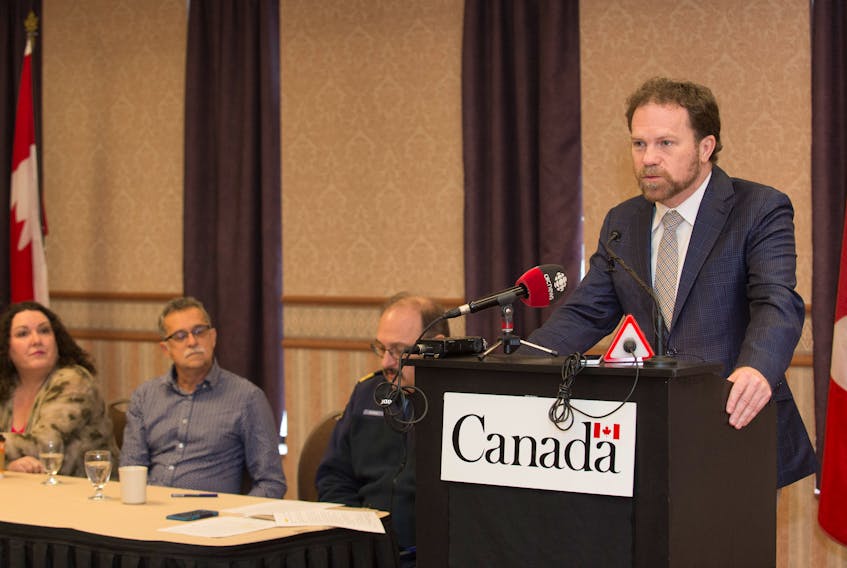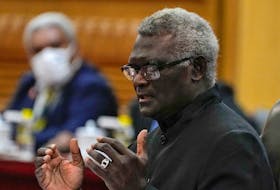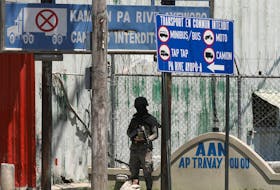GANDER, NL – The conference hall at Quality Inn and Suites in Gander was half-filled with people anxious for news about a cause they’ve been fighting for years.
They weren’t disappointed.
The Canadian Coast Guard is seeking proposals from qualified marine salvage companies to remove bulk oil from the wreck of Manolis L, the freighter that sank in January 1985 near Change Islands in Notre Dame Bay.
Coast of Bays-Central-Notre Dame MP Scott Simms made the announcement Jan. 17 on behalf of Dominic LeBlanc, minister of Fisheries, Oceans and the Canadian Coast Guard.
An estimated 115,000 to 150,000 litres of oil remained trapped in the Liberian freighter after it sank. Twenty-five years after the incident, oil pollution was traced to the wreck.
The coast guard’s environmental response team has conducted regular monitoring, underwater hull surveys and annual maintenance to contain leaks from the damaged hull ever since.
A technical assessment in September 2016 recommended bulk oil removal from the Manolis L to reduce the potential risk of pollution.
According to Wade Spurrell, assistant commissioner of the Canadian Coast Guard Atlantic Region, a request for proposals (RFP) has been issued “to remove all recoverable oil – the oil in the tanks and spaces.”
“There will be small amounts of oil in the piping that we may not get out.”
How much oil might remain could not be specified, nor whether it would be significant enough to cause environmental damage.
Spurrell said members of the public should get in contact with the Canadian Coast Guard if they notice any problems.
The oil-removal method is similar to that used in the assessment phase, Spurrell said.
“It will be a combination of diving and the use of remote-operated vehicles,” he said. “The biggest challenge to the operation is the hard rocks, the very exposed area, the depth of the water and navigation hazards.”
The wreck is adjacent to an area known as Blowhard rocks, he said.
“You have to be careful there. We know the wreck itself and the condition of the steel.
“I think we are well prepared and the risk is the safety of the people who are involved and to the environment.”
Whilst the salvage operation and bulk removal of the oil is open to bidding, Spurrell said the coast guard will oversee the operation and act as a back-stop in case of spills.
Welcome relief
This news was a welcome relief to Carolyn Parsons, co-chair of the Manolis L. Citizens’ Response Committee.
Prior to the announcement, she was hoping for positive news.
“We were very hopeful,” she said. “We’ve never been invited to an announcement before, and there have been several. It has finally come together.
“That’s what we’ve been waiting to hear for four years. It’s all good news today. It’s a relief. We’ll have a party sometime.”
Committee co-chair David McConkey shared Parsons’ sentiment.
“It was surreal and a shock,” he said. “We’ve been pushing for this for a long time. It was something that really needed to be addressed.”
Although another iceberg season lies ahead of the work being completed, “this is a really, really good step.”









